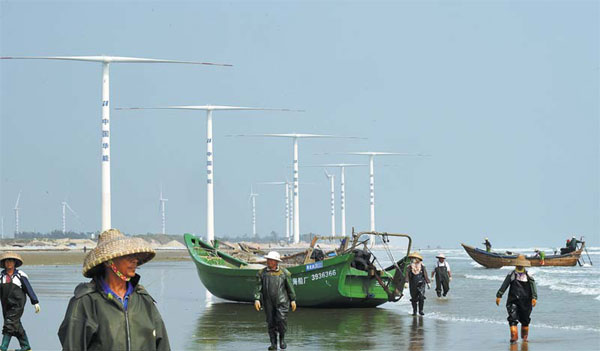Seafood industry adapts to market changes
By Lyu Chang (China Daily) Updated: 2015-07-14 08:05|
With rising labor costs and declining global demand, the seafood industry in Zhanjiang is evolving, with many companies moving from being pure raw seafood exporters to seafood product processing companies, industrial experts say. [Photo/China Daily] |
Wang said that to cope with the situation, his factory in Zhanjiang is launching more added-value products.
"We are now putting more effort into processing products such as breaded shrimps and tilapia, cooked peeled shrimps and tilapia fillets, instead of raw shrimps and fish," he said. "It takes more time and effort to create the finished products so that we can have a better deal."
Xie Wei, secretary-general of Zhanjiang Association of Cold-chain Logistics, which was set up earlier this year to provide logistics services to aquatic companies, said the role of the seafood companies in Zhanjiang is set to change, as many are moving from being pure raw seafood exporters to seafood product processing companies.
"We can't rely on the previous model for growth because the market has changed," he said. "Thus there is a lot of room for improvement such as efficiency and technology in how to process the products."
He added that there are more opportunities in the domestic market with the growing appetite for seafood products from the country's middle class.
A report from the Rabobank Group shows that the past two decades have seen China become a major seafood provider for the world, while the next two decades will see the country shift into a big consumer of seafood products.
"China is already the driver of global seafood, both in import and production, and I think the subsequent impact on the whole industry will be profound," Xie said.
- 2015 China International Fair for Investment and Trade kicks off in Xiamen
- China's commodity imports robust in Jan-Aug period
- China stocks rebound 2.92%
- 2015 China box office already past 2014 total
- China foreign trade decline widens in August
- Interview: JP Morgan's senior executive bullish on China
- Innovation, development the focus for NZ mayors
- Lives of freelancers


















